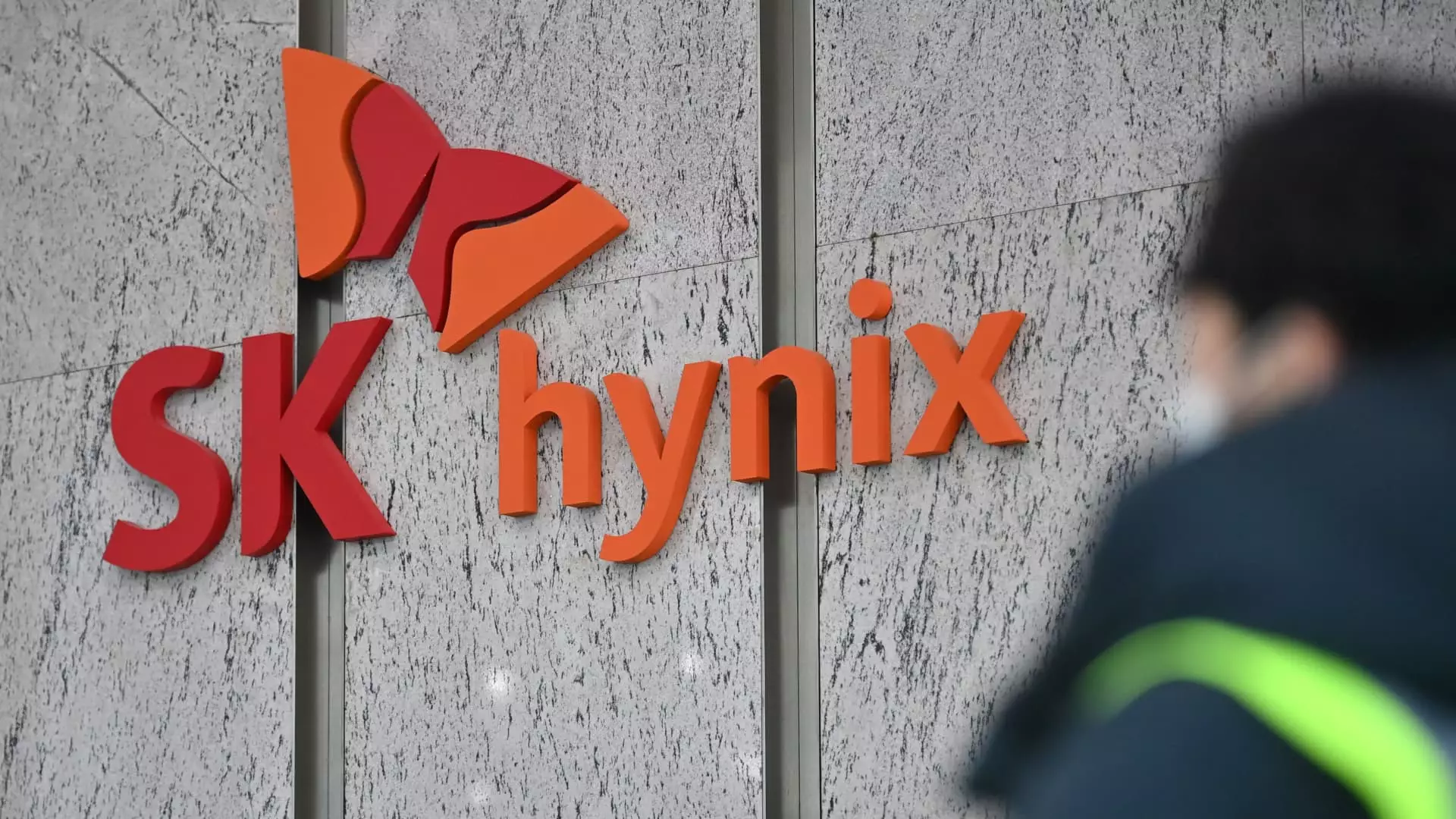SK Hynix, a major player in the memory chip industry, recently announced their second-quarter results, showcasing the highest profit level in six years. The company reported revenue of 16.42 trillion Korean won, surpassing expectations, and an operating profit of 5.47 trillion Korean won, marking a significant increase from the previous year. This surge in profit can be attributed to SK Hynix’s stronghold in the production of advanced memory chips crucial for artificial intelligence computing.
Despite the positive financial results, SK Hynix witnessed a dip in their stock price, with shares falling by as much as 7.81% in early trading. This decline was part of a broader trend, as South Korea’s Kospi index also experienced losses following a sell-off of U.S. tech stocks. The sector took a hit after disappointing earnings reports from tech giants like Alphabet and Tesla.
Artificial Intelligence Demand
One of the key drivers of SK Hynix’s success in the second quarter was the continuous rise in prices of their memory products, fueled by the growing demand for AI memory solutions, including high-bandwidth memory. The company experienced a 32% increase in revenue compared to the previous quarter, with a significant portion attributed to AI memory sales. SK Hynix is a major supplier of high-bandwidth memory chips used in AI chipsets by leading technology companies like Nvidia.
Future Outlook and Expansion
Looking ahead, SK Hynix remains optimistic about the second half of the year, anticipating strong demand from AI servers and a gradual recovery in conventional markets with the launch of AI-enabled computing devices. To capitalize on the flourishing AI market, the company plans to maintain its leadership in the high-bandwidth memory space by ramping up production of 12-layer HBM3E products. This expansion is crucial to meet the escalating demand for AI processors, as HBM technology requires more wafer capacity compared to traditional memory products.
Supply Challenges and Investment
While SK Hynix is poised to benefit from the growing demand for memory products, the company also faces challenges with tight supply conditions. The global shortage of semiconductor components, coupled with the increasing need for high-performance memory chips in AI applications, poses a significant hurdle for SK Hynix’s expansion plans. As a result, the company anticipates higher capital expenditure levels to address the surging demand for HBM and DRAM products.
In the highly competitive memory chip market, SK Hynix has been a frontrunner in supplying high-bandwidth memory chips to meet the demands of AI-driven technologies. The company’s strategic focus on HBM technology has allowed it to establish a strong foothold in the market, with projections suggesting continued growth and profitability in the coming years. Analysts anticipate a favourable pricing environment for memory products, attributing SK Hynix’s success to its competitiveness in the AI graphics processing unit and enterprise SSD segments.
SK Hynix’s record-breaking second-quarter results underscore the company’s position as a key player in the memory chip industry. With the increasing reliance on artificial intelligence technologies across various sectors, SK Hynix’s focus on high-bandwidth memory solutions positions it well to capitalize on the growing demand for AI processors. As the company expands its product portfolio and production capacity, it aims to maintain its leadership in the market and drive continued growth in the years to come.


Leave a Reply